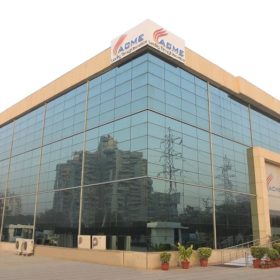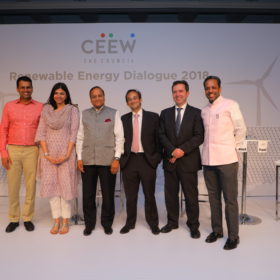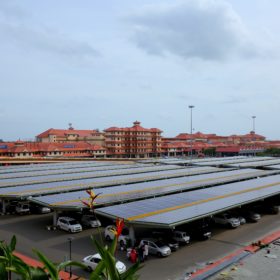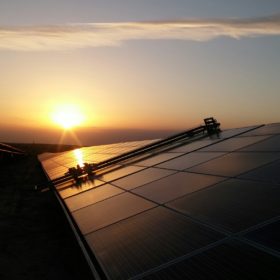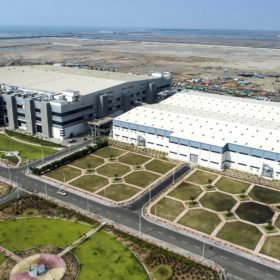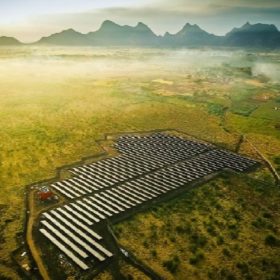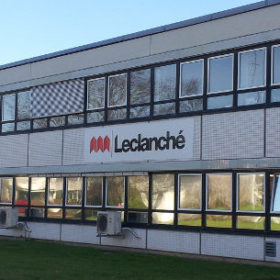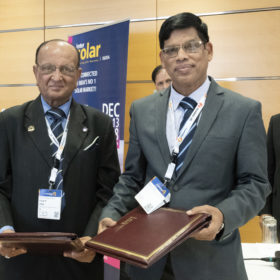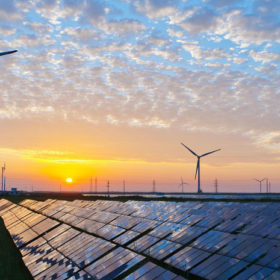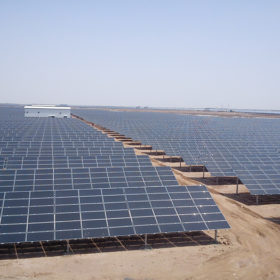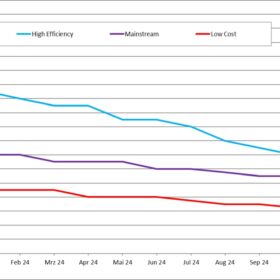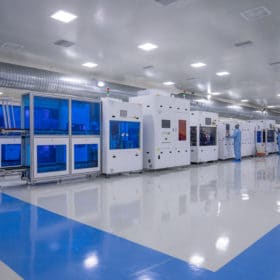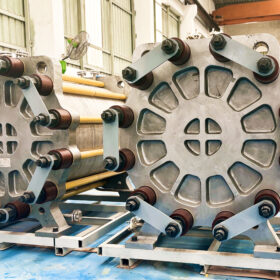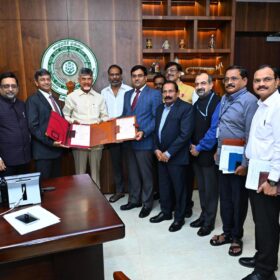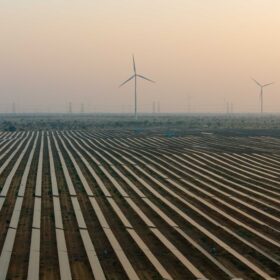ACME Solar wins 600 MW SECI project at lowest ever Indian tariff
ACME Solar has bagged a 600 MW solar PV project in a reverse auction conducted by the Solar Energy Corporation of India (SECI) at a tariff of Rs 2.44 (US$0.036) per unit.
3 solar takeaways from 2018 CEEW REdialogue
On the sidelines of the Renewable Energy Dialogue 2018, organized by Council on Energy, Environment and Water (CEEW) in New Delhi recently, pv magazine spoke to the Counil’s founder and CEO, Arunabha Ghosh, senior programme lead, Kanika Chawla, and Hero Future Energies CEO, Sunil Jain about the performance of India’s renewable sector over the past year, the reasons for the deferral of solar PV project auctions, and the poor uptake of rooftop solar in India.
Tata Power commissions 100 MW capacity in Anthapuramu Solar Park
Tata Power Renewable Energy Ltd (TPREL), an arm of Tata Power, has commissioned 100 MW of solar capacity at the Anthapuramu Solar Park in Andhra Pradesh, taking its overall renewable capacity to 2,215 MW in India.
Ecoppia to deploy 2,000 robots at Bhadla Solar Park in Rajasthan – interview
Israel-based Ecoppia has partnered with SB Energy, a wholly-owned subsidiary of SoftBank Group Corp., to deploy 2,000 robots across its five sites in the Bhadla Phase III and IV Solar Park Project in Rajasthan, India. This announcement follows its recent completion of large-scale deployments with ENGIE and Ostro Power (Actis Group) in the Bhadla park. pv magazine speaks to Ecoppia CEO Eran Meller about the project.
Will the new 50% manufacturing clause pump domestic manufacturing?
All future bids for renewable projects would have at least 50% domestic manufacturing component for developers. The government will also soon make it obligatory for project developers to manufacture storage systems.
India’s top 10 renewable players claim over 60% of projects, says CEEW-IEA study
Despite this, at least half the companies among the top 10 – in terms of shares of projects sanctioned – changed every year between 2014 and 2017. International independent power producers (IPPs) accounted for around 45% of the sanctioned projects in solar parks. Around 35% of the park projects were awarded to IPPs registered in Mauritius, where companies benefit from preferential taxation.
Exide Industries, Leclanché announce JV for battery manufacturing in Gujarat
India’s Exide Industries Limited and Switzerland-based Leclanché S.A. have announced a 75%-25% joint venture (JV) under which lithium-ion (Li-ion) cells, modules and battery packs will be manufactured in the state of Gujarat.
President Elect, GSC talks about new ISA partnership, plans for global solar promotion
In a significant development, two major international solar coalitions – the Global Solar Council (GSC) and the International Solar Alliance (ISA) – signed an MoU for the cooperation and collaboration of solar growth in all ISA-member countries. Pranav Mehta from the GSC talks to pv magazine about the move.
India invites 2.5 GW bids for ISTS-connected wind-solar hybrid projects
The projects are to be developed on a build-own-operate basis for an aggregate capacity of 2,500 MW. The eligible bid capacity is 200-500 MW, with a project capacity of at least 50 MW at one project site. The maximum tariff payable to each project developer is fixed at Rs 2.93/kWh for the entire term of 25 years.
India adds 10.4 GW of solar in FY 2017-18, Karnataka leads the way
The Indian solar PV market saw 10.4 GW of new capacity added in the 2017-18 financial year, says Bridge to India, thus bringing cumulative installations to 24.4 GW as of this March. Leading the charge is the state of Karnataka. Concerns over the industry’s development remain, however.
